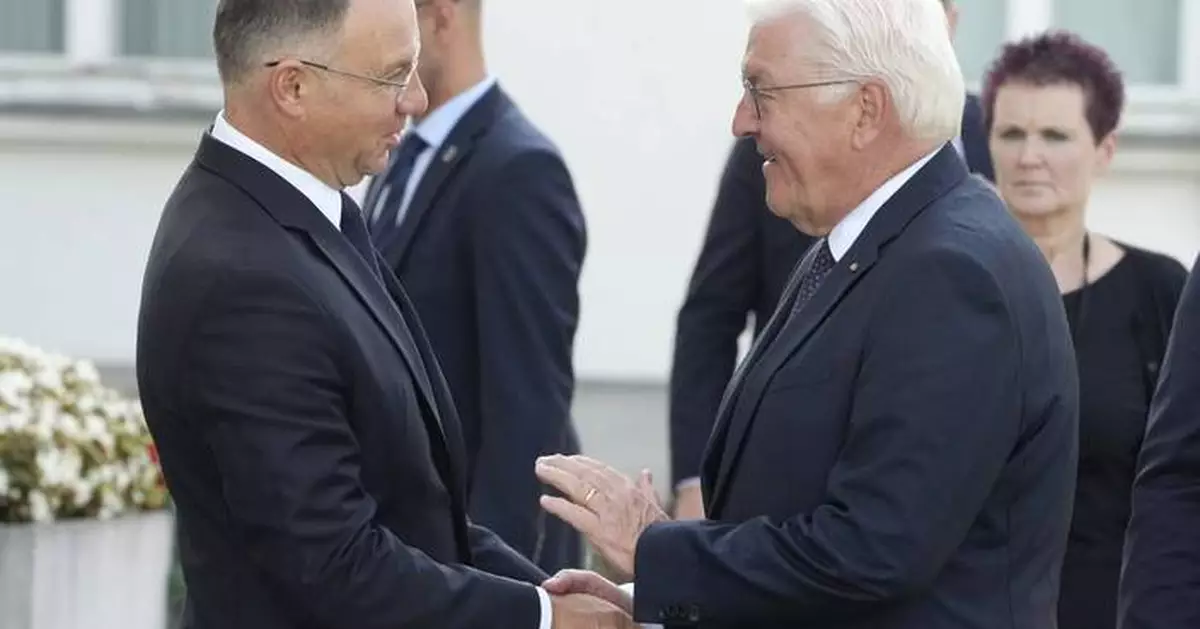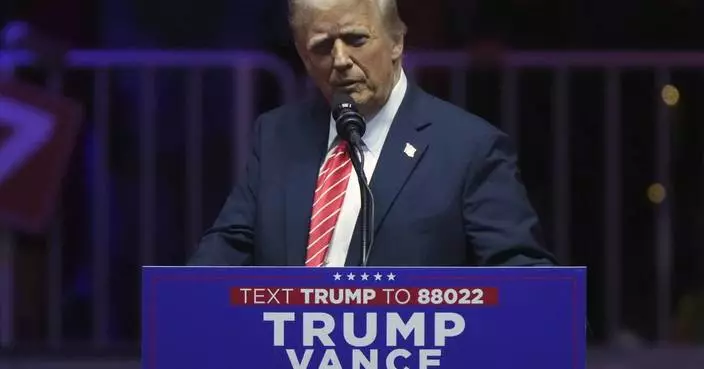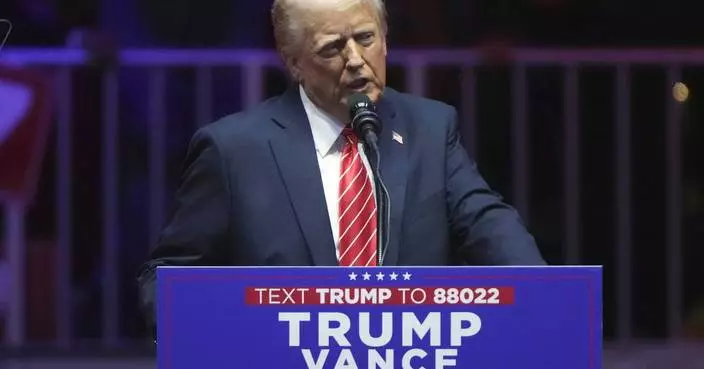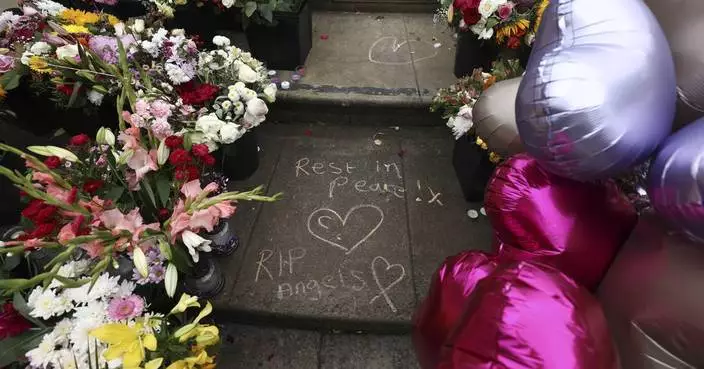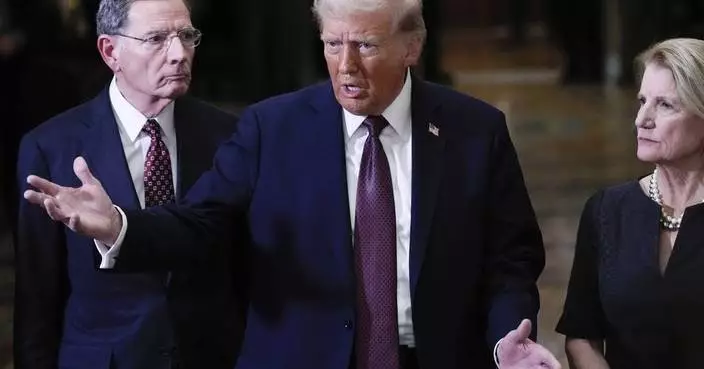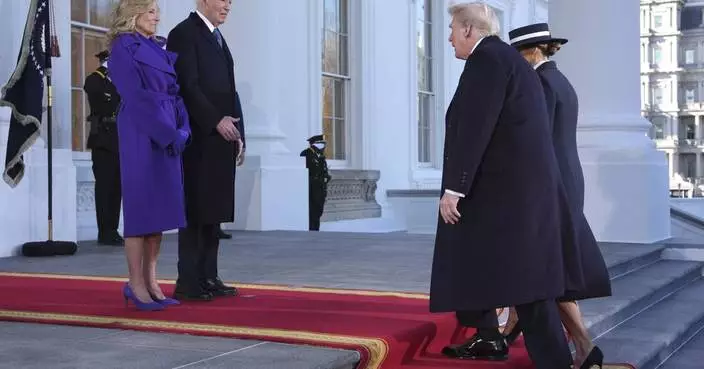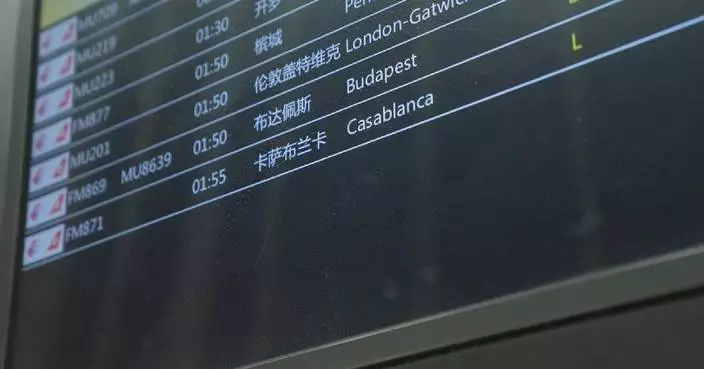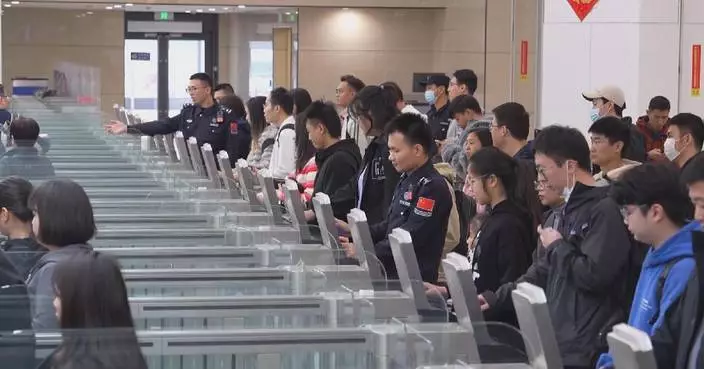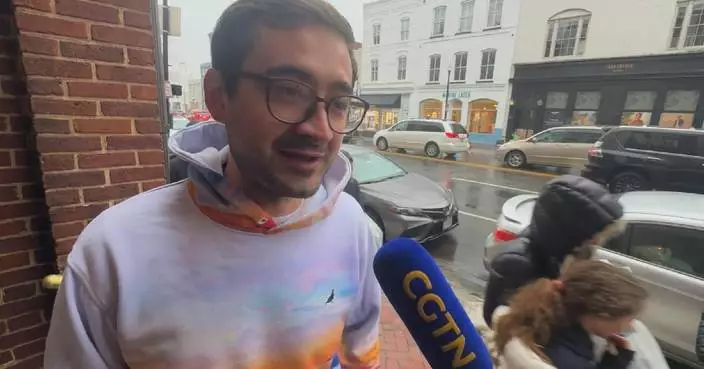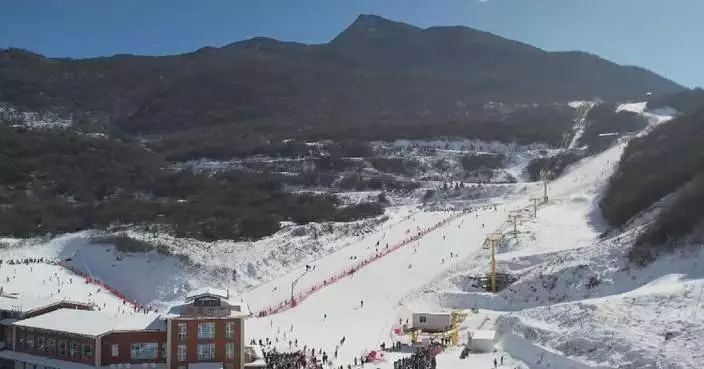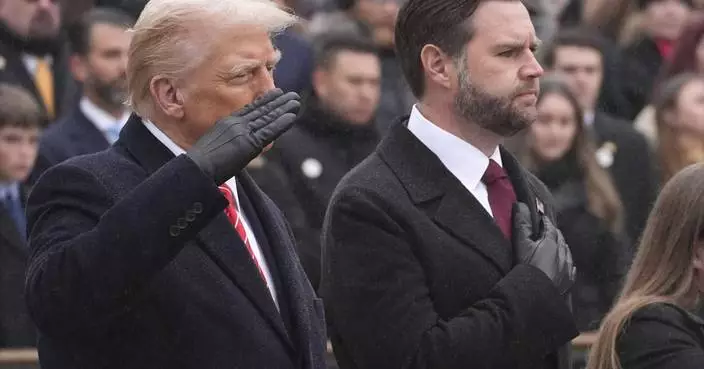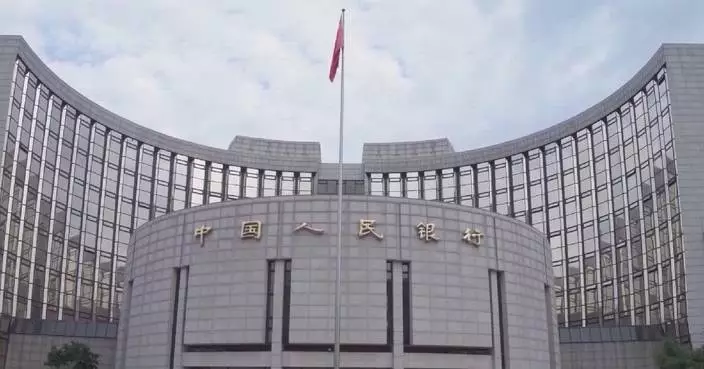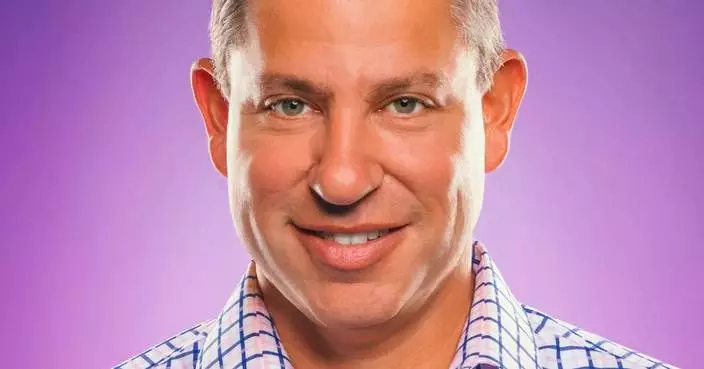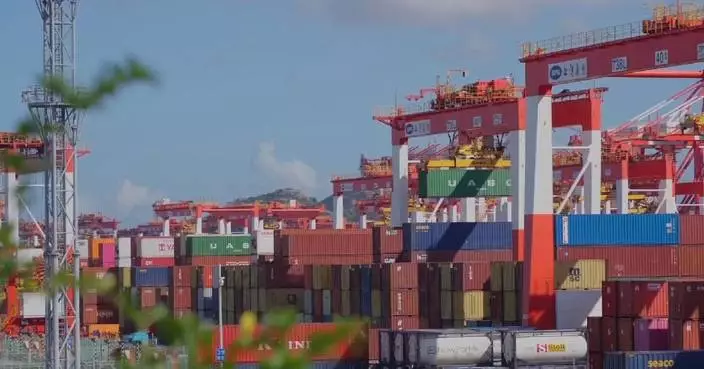WARSAW, Poland (AP) — The Polish capital came to a standstill Thursday on the 80th anniversary of the outbreak of the Warsaw Uprising, an ill-fated revolt against Nazi German forces during World War II. Sirens wailed, church bells rang and people stopped in their tracks, some stepping out of their cars to pay their tribute to the fallen heroes.
As Poland marked the day of great importance in the national memory, news broke that the oldest surviving insurgent of the uprising, 106-year-old Barbara Sowa, died in the morning. With very few survivors left to take part in the ceremonies, it was a poignant reminder of the passing away of the generation shaped by the sacrifice of World War II.
Among those who stopped in their tracks were Taylor Swift fans who were also out in the thousands for the first of the singer's three concerts Thursday evening in the city. She had warned her fans — many who had traveled from afar — not to panic when they heard the sirens.
Earlier in the day, Polish President Andrzej Duda and German President Frank-Walter Steinmeier stood together, heads bowed, to remember those days of August in 1944. They paid tribute to the Wola Massacre, the mass-murder of civilians of Warsaw’s Wola district carried out by the Germans from Aug. 5 to Aug. 12, 1944.
“They were led out of their homes, tenement houses, their homes were set on fire, and they themselves were shot in the streets, and their bodies were burned. Several tons of ashes were collected from the streets and squares of Wola, in order to place them in a common grave,” Duda said.
The German president's bowed head and other symbolic gestures signaled remorse for the crimes of his nation. That Steinmeier "lays a wreath, bows his head, kneels before the commemorative cross,” calls for respect, said Duda, speaking for the nation under brutal occupation from 1939-1945, which suffered the extermination of millions of its citizens, Christian and Jewish, and the near-total destruction of its capital city.
Many Poles feel the symbolic gestures are not enough, and the previous nationalist government in power from 2015-23 — allied with Duda — demanded $1.3 trillion from Germany in war reparations. Germany says it will not pay and the matter was settled with compensation paid to East Bloc nations in the years after the war and with territory given up to Poland.
The government of Prime Minister Donald Tusk, which took power last December, has toned down the demands but says it would still like Berlin to consider possibilities for compensation.
There remains a feeling in Poland that Germans have done much more to confront their crimes against Europe's Jews than against the Poles, who were viewed as racially inferior in Adolf Hitler's ideology, and subjected to forced labor and atrocities.
Warsaw’s revolt began Aug. 1, 1944, by the clandestine Home Army, which acted on orders from Poland’s government-in-exile in London.
The aim was to free the capital from German occupiers and take control of the country ahead of the advancing Soviet army. Moscow, intending to rule postwar Poland, withheld help and kept its Red Army positioned on the other side of the Vistula River as the capital bled and burned.
The Nazis, with their professional army and superior weaponry, killed 200,000 Polish fighters and civilians and razed the city in revenge.
Today the uprising is remembered by Poles as one of the most important moments in a long history of independence struggles, often against Russia. The courage of the fighters remains a defining memory in the Polish image of itself as a nation willing to make the ultimate sacrifice for freedom.
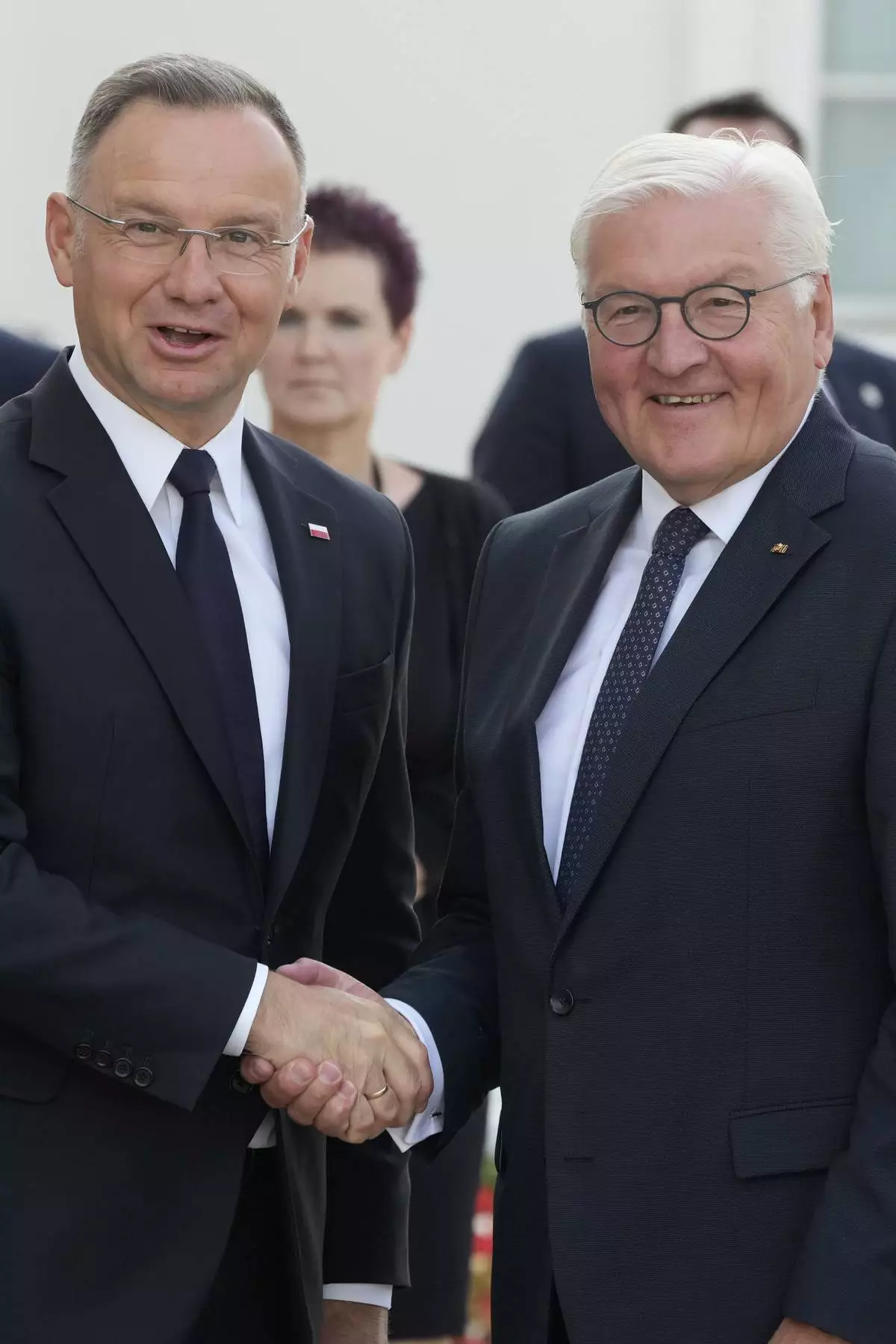
Poland's President Andrzej Duda, left, shakes hands with Germany's President Frank-Walter Steinmeier prior to their talks at the Belweder Palace in Warsaw, Poland, Thursday Aug. 1, 2024. President Steinmeier is on a two-day-visit in Warsaw on the occasion of the 80th anniversary of the Warsaw uprising against Nazi occupiers. (AP Photo/Czarek Sokolowski)
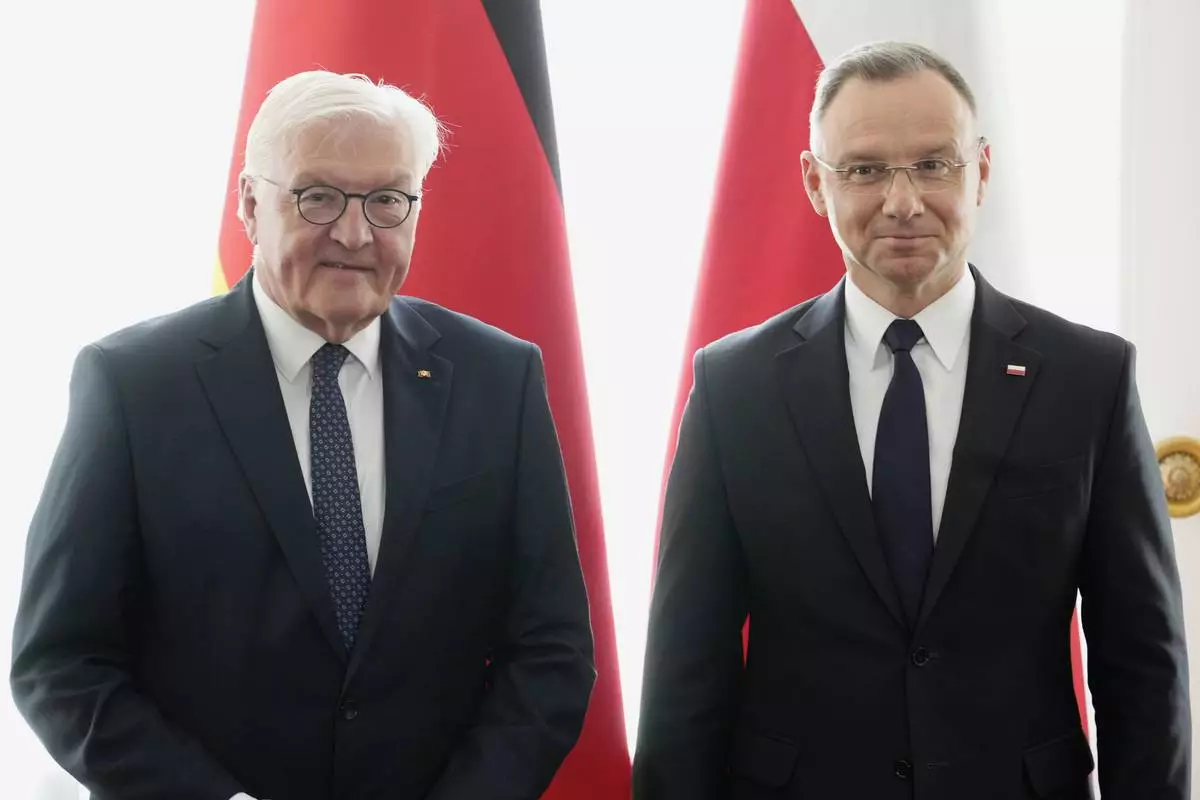
Poland's President Andrzej Duda, right, poses with Germany's President Frank-Walter Steinmeier prior to hold talks at the Belweder Palace in Warsaw, Poland, Thursday Aug. 1, 2024. President Steinmeier is on a two-day-visit in Warsaw on the occasion of the 80th anniversary of the Warsaw uprising against Nazi occupiers. (AP Photo/Czarek Sokolowski)
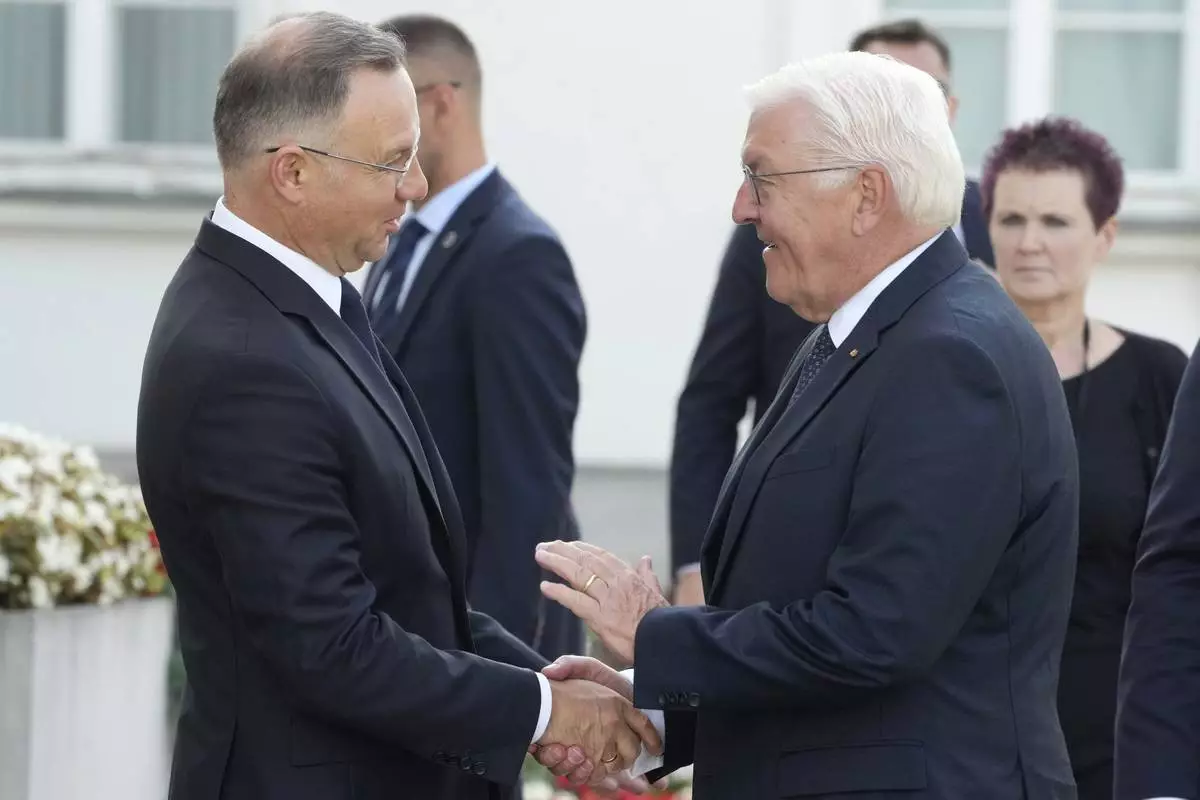
Poland's President Andrzej Duda, left, shakes hands with Germany's President Frank-Walter Steinmeier prior to their talks at the Belweder Palace in Warsaw, Poland, Thursday Aug. 1, 2024. President Steinmeier is on a two-day-visit in Warsaw on the occasion of the 80th anniversary of the Warsaw uprising against Nazi occupiers. (AP Photo/Czarek Sokolowski)
WASHINGTON (AP) — The price of bitcoin surged to over $109,000 early Monday, just hours ahead of President-elect Donald Trump’s inauguration, as a pumped up cryptocurrency industry bets he'll take action soon after returning to the White House.
Once a skeptic who said a few years ago that bitcoin “ seems like a scam,” Trump has embraced digital currencies with a convert’s zeal. He's launched a new cryptocurrency venture and vowed on the campaign trail to take steps early in his presidency to make the U.S. into the “crypto capital” of the world.
His promises including creating a U.S. crypto stockpile, enacting industry-friendly regulation and event appointing a crypto “czar” for his administration.
“You’re going to be very happy with me,” Trump told crypto-enthusiasts at a bitcoin conference last summer.
Bitcoin is the world’s most popular cryptocurrency and was created in 2009 as a kind of electronic cash uncontrolled by banks or governments. It and newer forms of cryptocurrencies have moved from the financial fringes to the mainstream in wild fits and starts.
The highly volatile nature of cryptocurrencies as well as their use by criminals, scammers and rogue nations, has attracted plenty of critics, who say the digital currencies have limited utility and often are just Ponzi schemes.
But crypto has so far defied naysayers and survived multiple prolonged price drops in its short lifespan. Wealthy players in the crypto industry, which felt unfairly targeted by the Biden administration, spent heavily to help Trump win November’s election. Bitcoin has surged in price since Trump's victory, topping $100,000 for the first time last month before briefly sliding down to about $90,000. On Friday, it rose about 5%. It jumped more than $9,000 early Monday, according to CoinDesk.
Two years ago, bitcoin was trading at about $20,000.
Trump’s picks for key cabinet and regulatory positions are stocked with crypto supporters, including his choice to lead the Treasury and Commerce departments and the head of the Securities and Exchange Commission.
Key industry players held a first ever "Crypto Ball” on Friday to celebrate the first “crypto president." The event was sold out, with tickets costing several thousand dollars.
Here’s a look at some detailed action Trump might take in the early days of his administration:
As a candidate Trump promised that he would create a special advisory council to provide guidance on creating “clear” and “straightforward” regulations on crypto within the first 100 days of his presidency.
Details about the council and its membership are still unclear, but after winning November’s election, Trump named tech executive and venture capitalist David Sacks to be the administration’s crypto “czar.” Trump also announced in late December that former North Carolina congressional candidate Bo Hines will be the executive director of the “Presidential Council of Advisers for Digital Assets.”
At last year’s bitcoin conference, Trump told crypto supporters that new regulations “will be written by people who love your industry, not hate your industry.” Trump's pick to lead the SEC, Paul Atkins, has been a strong advocate for cryptocurrencies.
Crypto investors and companies chafed as what they said was a hostile Biden administration that went overboard in unfair enforcement actions and accounting policies that have stifled innovation in the industry — particularly at the hands of outgoing SEC Chairman Gary Gensler.
“As far as general expectations from the Trump Administration, I think one of the best things to bet on is a tone change at the SEC,” said Peter Van Valkenburgh, the executive director of the advocacy group Coin Center.
Gensler, who is set to leave as Trump takes office, said in a recent interview with Bloomberg that he’s proud of his office’s actions to police the crypto industry, which he said is “rife with bad actors.”
Trump also promised that as president he’ll ensure the U.S. government stockpiles bitcoin, much like it already does with gold. At the bitcoin conference earlier this summer, Trump said it the U.S. government would keep, rather than auction off, the billions of dollars in bitcoin it has seized through law enforcement actions.
Crypto advocates have posted a draft executive order online that would establish a “Strategic Bitcoin Reserve” as a “permanent national asset” to be administered by the Treasury Department through its Exchange Stabilization Fund. The draft order calls for the Treasury Department to eventually hold at least $21 billion in bitcoin.
Republican Sen. Cynthia Lummis of Wyoming has proposed legislation mandating the U.S. government stockpile bitcoin, which advocates said would help diversify government holdings and hedge against financial risks. Critics say bitcoin’s volatility make it a poor choice as a reserve asset.
Creating such a stockpile would also be a “giant step in the direction of bitcoin becoming normalized, becoming legitimatized in the eyes of people who don’t yet see it as legitimate,” said Zack Shapiro, an attorney who is head of policy at the Bitcoin Policy Institute.
At the bitcoin conference earlier this year, Trump received loud cheers when he reiterated a promise to commute the life sentence of Ross Ulbricht, the convicted founder of the drug-selling website Silk Road that used crypto for payments.
Ulbricht’s case has energized some crypto advocates and Libertarian activists, who believe government investigators overreached in building their case against Silk Road.
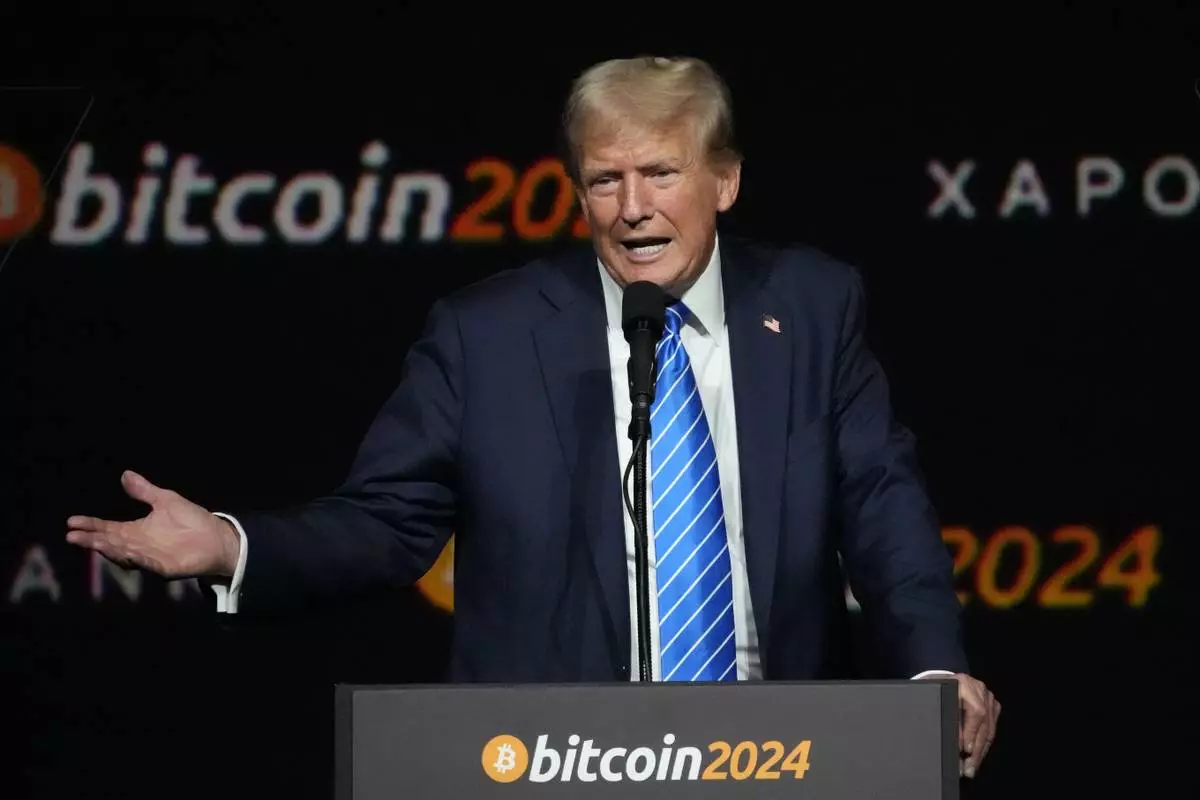
FILE - Donald Trump speaks at the Bitcoin 2024 Conference July 27, 2024, in Nashville, Tenn. (AP Photo/Mark Humphrey, File)





